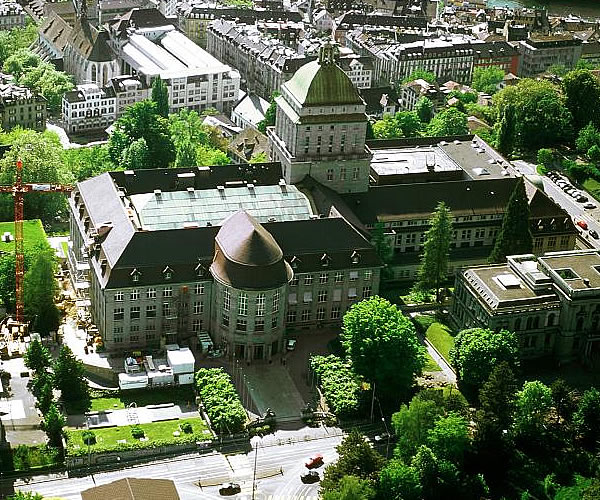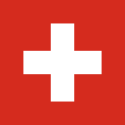
Education is highly valued in Switzerland and the country has an illustrious list of intellectuals who were born there, or completed important work in the country. Albert Einstein was awarded a Nobel prize for his work in the field of physics and his theory of relativity while working in Bern. Vladimir Prelog, Heinrich Rohrer, Richard Ernst, Edmond Fischer, Rolf Zinkernagel and Kurt Wuthrich also received Nobel prizes in the sciences. In total, 113 Nobel Prize winners stand in relation to Switzerland and the Nobel Peace Prize was awarded 9 times to organizations residing in Switzerland.
In Switzerland, education is the responsibility of the government from the pre-school to the tertiary level (universities and higher vocational education and training). However, the constitution of Switzerland delegates the authority for the school system to the cantons. Standards and practices can be quite different between cantons, and there have been efforts to standardize. Some cantons have engaged in inter-cantonal agreements for easier transfers and communication.
Swiss education is free and compulsory. All children may attend school, including foreign children. Children in the Canton of Zurich must attend school for 11 years. Schooling is divided into nursery (2 years), primary school (6 years) and upper school (3 years). The school year begins after the summer holidays (week 4). The level of education is excellent and students score highly on international tests.
Elementary School
The cantons and their municipalities are responsible for the organization and financing of pre-schools and the standards differ significantly between cantons. The minimum age for primary school is six years in all cantons, but most cantons provide a free "children's school" (or kindergarten or école enfantine) starting at four or five years old. Though not mandatory, most children attend pre-school for at least 1 year.
Primary school (Volksschule) continues for six years. Usually, the children have only one teacher who teaches all subjects.
After the first six years, students enter Oberstufenschule which lasts three years. There are usually at least two teachers for each class teaching different subjects. There may be other teachers for some special subjects like gym, needlework, cooking, etc. Oberstufenschule is further divided into usually three sections. There is a section for the fastest learners, as well as sections for children learning more slowly.
- Sekundarschule - This is the highest level and is required if a student wants to attend a Gymnasium. Subjects includes math, geometry, native language, first foreign language (usually French in Zurich), geography, history and more.
- Realschule - Similar subjects are taught to Sekundarschule at a more basic level.
- Oberschule - A more limited set of courses are taught for students who have difficulties in learning.
Enrollment
Every child between 6 and 15 years old registered in Switzerland has to be enrolled in a primary or secondary school. There are many schools available, so visit schools to find the best fit. Requirements differ between cantons, but there are some standard documents necessary.
- Birth certificate or livret de famille
- Proof of health and accidents insurance
- Residence permit
Apprenticeship
Known as Berufslehre, students can an apprenticeship after elementary school. Depending on the profession, an apprenticeship takes two to four years. Apprenticeships may include handicrafts (carpenter, baker, hairdresser) to office worker (secretary, bookkeeper, IT specialist). Apprentices are trained at a company or organization, but also attend school for one or two days a week.
After apprenticeship, it is still possible to get a graduation diploma at a Maturitaetsschule (graduation diploma school). After completing courses at a Maturitaetsschule, a student can attend university like a student who attended a Gymnasium. This path in the educational curriculum is known as Zweiter Bildungsweg (secondary educational path).
Secondary Education
Known in Zurich as Gymnasium, secondary level education is again regulated by the cantons. There are several different gymnasiums:
- The Mathematisches und Naturwissenschaftliches Gymnasium (Secondary School of Math and Science) - Focuses on math and science, but also teaches German and two foreign languages (usually French and English or Italian).
- The Neusprachliches Gymnasium (Secondary School of Modern Languages) - Focuses on modern languages such as German, French, Italian and English, but includes some math and science as well.
- The Altsprachliches Gymnasium (Secondary School of Ancient Languages) - Focuses on Latin plus at least two other languages, but includes math and science subjects.
- Wirtschaftsgymnasium (Secondary School of Economics) - Focuses on economy.
These secondary schools last either six and a half or four and a half years and lead to the Eidgenoessische Matura, a Federal Graduation Diploma. This is recognized at all universities in Switzerland and at most universities in foreign countries.
About 90 percent of young people in Switzerland complete upper secondary education at the age of 18 or 19 which allows them to start working, switch to a college of higher vocational training or with a matura/baccalaureate continue their education at a university.
Private School
Most private schools (privatschulen, ecoles privees) are international schools that teach in a foreign language. About 5 percent of switzerlan's student population attends private school. Private schools tend to be extremely expensive, though different schools offer different prices, curriculum and quality. To find a school that fits your needs, the Swiss Federation of Private Schools is a great resource.
Akademikergesellschaft für Erwachsenenfortbildung (AKAD)
Jungholzstrasse 43
8050 Zurich
Benedict-Schule Zurich
Militarstrasse 106
CH-8004 Zurich
IfFP Institut für Finanzplanung
Hohlstrasse 550
CH-8048 Zurich
HSO Schulen Zurich AG
Andreasstrasse 15
CH-8048 Zurich
University
Swiss universities are ranked among the best in the world. Their diplomas are recognized in most countries and their are many international students, as well as native Swiss. Switzerland actually has the second highest rate of foreign students in tertiary education, after Australia.
University of Zurich - The biggest university in Switzerland is the with nearly 25,000 students. Founded in 1833, it is under the direction of the canton of Zurich.
Swiss Federal Institute of Technology (ETH) - Sponsored by the federal government and founded 1855. The institution is usually ranked as one of the top university in continental Europe and is particularly highly ranked in the fields of chemistry, mathematics and physics. There are 21 Nobel Laureates who are associated with the institution.
University of St. Gallen (HSG) - Leader in business and management studies.
International Institute for Management Development(IMD) - Leader in business and management studies.
Zurich University of Applied Sciences(ZHAW) - One of the largest and most productive universities of applied sciences in Switzerland. About 9000 students are enrolled at the ZHAW in a total of 24 Bachelor’s degree programs and 12 consecutive Master’s programs.
Zurich University of the Arts(ZHdK) - One of the top technical colleges.
Library
Along with an excellent education and research community, Switzerland has a great library system. There are many libraries throughout the country (listing of facilities).
Swiss National Library - The national library of Switzerland is located in Bern and is part of the Federal Office of Culture. It collects, catalogs and conserves information in all fields and disciplines, and in any medium.
ETH Bibliothek - This grand building is part of the university campus of the Swiss Federal Institute of Technology. Founded in 1855, it is home to over six million books, documents and regional Swiss artefacts.
Update 18/08/2011

Babbel is an international success with millions of active subscribers and ranked as the world's #1 innovative company in education.
Why Babbel?
Learn and review on your own schedule: Mobile, tablet or desktop compatible, with lessons about 10-15 min.
Expert-made courses: Learn the basics or focus on topics like travel, culture, or business.
Start speaking right away: Learn to speak a new language naturally and conversationally.
Every learner is different: Each course is based on your native language and personal interests.
Remember everything: Babbel employs proven cognitive techniques that move new vocab to your long-term memory.
Refine your pronunciation: Practise speaking and improve your pronunciation with speech recognition technology.
Try Babbel for free today
Registration with Babbel is completely free of charge and the first lesson in every course is FREE to try (Depending on the language you choose, that's 30-80 free lessons!).
If you want full access to Babbel's courses, simply choose a subscription that works best for you. Buy with confidence: 20-day money back guarantee!
